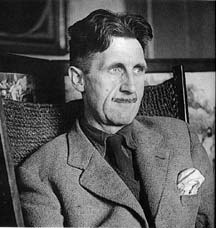Isn’t It Ironic?
An old man turned ninety-eight
He won the lottery and died the next day
It’s a black fly in your Chardonnay
It’s a death row pardon two minutes too late
And isn’t it ironic…don’tcha think?
“Ironic”
- Alanis Morrisette
When Ms. Morrisette released this little ditty, did she ask herself if any part of the song was indeed ironic? Like the stanza above, the entire song lists a series of unfortunate twists of fate, coincidences, and mishaps, but no occasions of irony. It has been suggested that perhaps she intended to make an ironic statement by deliberately not using an example of irony, but that would imply a subtlety that is markedly absent from the rest of her work.
No, it is far more probable that Ms. Morrisette was using the contemporary catchall phrase denoting something bad or hip or cool. There are those who argue that cynicism and irony are interchangeable synonyms – but they are not. Certainly, irony insinuates a coloring of cynicism by its skeptical (and often mocking) nature. However, they are not the same thing.
After all, irony is about intention. The nihilism of these lyrics, and a disturbing amount of popular culture along with it, would simply not qualify. When one thinks about real irony it was nearly always used with moral force. Two of the best examples of ironic statement – Jonathan Swift’s "A Modest Proposal" and Voltaire’s “Candide” – argued forcibly against the stupidity, cruelty, and hypocrisy of their age.
Only the dimmest reader would honestly think Swift actually was endorsing the fattening of Irish babies to be sold for food “that they not be a burden on their parents”. He was, of course, addressing the British landlords’ oppressive and exploitive rule over their Irish tenants. After giving us various recipes for their presentation at fine tables, Swift quickly abandons any pretense of concealment of his outrage when he states; “I grant this food will be somewhat dear, and therefore very proper for landlords, who, as they have already devoured most of the parents, to have the best title to the children."
“Candide” becomes all the more hilarious and pointed when one discovers that “candide” means “illuminated”, for there are few characters in all of literature as gormless as Voltaire’s protagonist. As we follow the hapless Candide from one misadventure to the next, Voltaire exposes the moral bankruptcy of what is considered “civilized” behavior – especially when it bumps up against other cultures. What mystifies me is that the advocates of multiculturalism do not wholeheartedly embrace this book; that is, until you consider the unfortunate fact that a "dead white European male" wrote it. Then again, the multiculti crowd is not much interested in subtlety nor have I found them to be the sharpest tools in the shed.
It is through the dimwitted Candide that Voltaire expresses a greater truth;"... those who say everything is well are uttering mere stupidities; they should say everything is for the best. " And that is the point, both Swift and Voltaire understood that irony is dissembling; stating one thing and meaning quite another.
So, why care about the meaning of one word? Certainly many words have changed their meaning over time. George Orwell, another writer who understood the power of irony as a rhetorical weapon (think of "All animals are equal but some animals are more equal than others."), argues in his brilliant essay "Politics and the English Language" that "It [language] becomes ugly and inaccurate because our thoughts are foolish, but the slovenliness of our language makes it easier for us to have foolish thoughts." Irony is one of our defenses against this and therefore should be vigorously defended.
So, what do you do? Perhaps the next time someone says to you, "isn't it ironic?" when it is in fact not, you should answer; "No, it isn't. It may be coincidental, hypocritical, stupid, or just plain bad luck, but it sure as hell is not ironic."





1 Comments:
Hello. I see that you like very much George Orwell.Can you make me understand how the patterns pointed by Orwell are reflecting in the British newspapers?
Post a Comment
<< Home